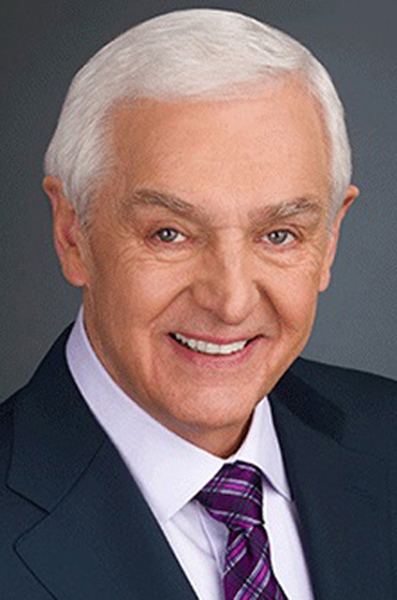
EL CAJON, Calif. (BP) — A well-known attorney in Pennsylvania pled guilty several years ago to corruption charges. All the details of his case were widely covered in the media. I am not going to mention his name or cite the sources online where you can read about his crime. What I want to do is highlight a letter he submitted to the judge just prior to his sentencing:
“Your Honor, I take full responsibility for my actions and inactions. When I [got involved with the other guilty parties] I knew instantly that was wrong. I was both scared and selfish and I will forever regret that decision.
“… I apologize to my family for the hell I have put them through ….
“Second, I apologize to my partners, my employees and my friends. I am truly sorry ….
“Third, my sincere apologies to [my] clients ….
“To the Court, I apologize for the damage I caused …
“Last but not least, I apologize to the people of [our] County and ask for their forgiveness …. I am truly sorry …
“Respectfully submitted, [Name].”(1)
I cited the words used by this attorney for one reason: There is a right way to own our sins, misdeeds and failures — and it begins with saying that we are responsible and asking for forgiveness.
Others & our sin
There is a general rule that counselors use regarding the acknowledgement of sin: It needs to be confessed and forgiveness sought as far as the circle of damage extends. If one person sins against another, that’s a small circle of damage. But if a person commits sin at a public level, then confession and forgiveness must be sought as far as the sin was felt.
Of course, it goes without saying that every sin by an individual is first a sin against God. That’s why King David, in his Psalm of confession for the sins of murder, deceit and adultery, said to God, “Against You, You only, have I sinned, and done this evil in Your sight” (Psalm 51:4).
Owning our sin
When taking responsibility for sin, we don’t have to write a confession as the man I cited did. But regardless of how many words we speak, these three words must be spoken: “I have sinned.”
We can’t say, “I was forced to sin,” “I was influenced to sin,” “I was taught to sin” or “I accidentally sinned.” Those blame-shifting words are used when we have not yet arrived at the point of accepting full responsibility for our actions.
I encourage you to read Psalm 51 — it is a petition for forgiveness. In the psalm, David confesses everything to God after he was confronted by Nathan. He asks God to “create a clean heart” in him once again. Then he makes his confession not as the king of Israel but as a guilty sinner who is acknowledging his sin. As we ask God for forgiveness of our acknowledged sin, we will rediscover the joy of our salvation just as David did.
Overcoming our sin
To overcome sin, it must be confessed. By “overcome,” I mean setting right the thing our sin has tainted. Sometimes the damage cannot be reversed. But to the extent that relationships can be repaired, reparations made and reconciliation enjoyed, owning and overcoming are prerequisites to finding peace and forgiveness.
First, we have to repent of our sin. Like Christ told the church at Ephesus, we must “repent and do the first works” — the works of righteousness (Revelation 2:5).
Second, we have to acknowledge our sin to God and to any against whom we have sinned, and ask their forgiveness (1 John 1:9)
Third, we need to make reparations where we can. If our actions have caused loss to others, we must restore what they have lost to the best of our ability (Proverbs 6:30-31).
Fourth, we must covenant with God to seek His power to avoid repeating the sin (Job 31:1).
As we move into the new year, may God grant you and me the grace to be responsible to own and overcome every sin so that we can live victoriously for Christ.

















